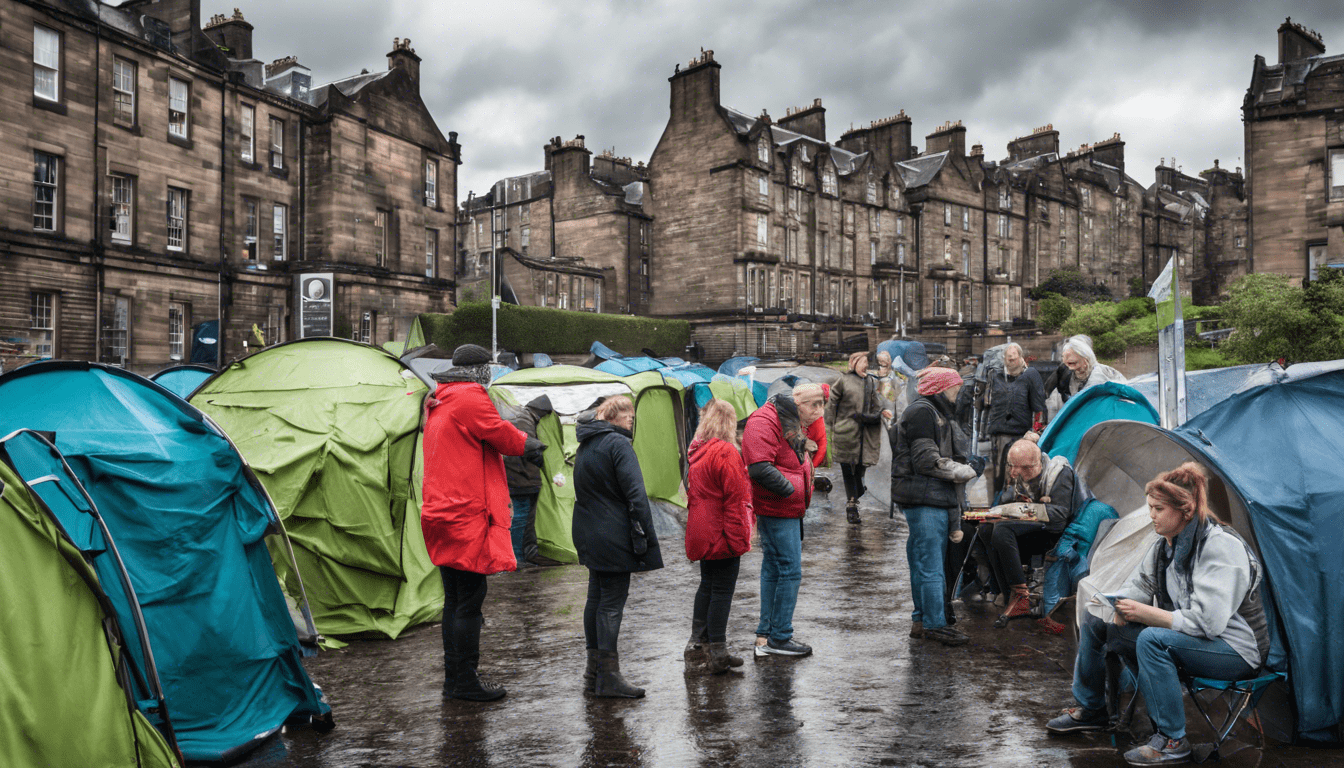In a decisive move to enhance the welfare of vulnerable populations, the City of Edinburgh Council has announced an urgent plan to relocate over 700 homeless residents currently living in unlicensed accommodations, including hotels and bed and breakfasts. This relocation effort comes amid growing concerns regarding health and safety standards, as these 28 properties do not meet the legal requirements for licensing as Houses in Multiple Occupancy (HMO). The council aims to complete these relocations by the end of November 2024, thereby resolving critical legal issues and ensuring the safety and security of those affected (Edinburgh Council, 2024).
The reliance on temporary accommodation surged dramatically during the Covid-19 pandemic, escalating from 3,570 in 2020 to over 5,000 now, as emergency measures were instituted to prevent virus transmission. However, with the council now legally bound to rectify the situation, they have halted new applications for social housing and non-urgent repairs, directing their resources towards securing adequate housing for those currently in unlicensed shelter (Scottish Government, 2024). Furthermore, the existing accommodations provided during the pandemic are now under scrutiny, prompting legal challenges from anxious landlords and the pressure of meeting health and safety regulations (Edinburgh Live, 2024).
This article will explore the implications of the council’s decision, focusing on the urgent relocation plan and the broader context of temporary accommodations that have become a topic of significant public health and legal discourse.
Key Takeaways
- Edinburgh Council aims to relocate over 700 homeless residents from unlicensed accommodations due to legal compliance.
- The spike in temporary housing numbers is a direct result of emergency measures taken during the Covid-19 pandemic.
- Current legal challenges have forced the council to prioritize relocating individuals from these non-compliant properties by November.
Background on Temporary Accommodations During the Pandemic
The City of Edinburgh Council is taking significant measures to resolve the current housing crisis by relocating over 700 homeless individuals currently residing in unlicensed hotels and bed and breakfasts (B&Bs) by the end of November
2024. These individuals are occupying 28 properties that do not comply with licensing requirements for Houses in Multiple Occupancy (HMO), which are essential for ensuring necessary health and safety standards (City of Edinburgh Council, 2024). This action comes as a direct result of the emergency measures enacted during the Covid-19 pandemic, which greatly increased the reliance on temporary housing solutions. Since the pandemic began, the number of individuals in temporary accommodations has surged from 3,570 in 2020 to more than 5,000 (Scottish Government, 2024). As a consequence of the current legal advisories, the council has frozen new applications for social housing and non-urgent repairs, prioritizing the relocation of those living in these unlicensed locations. The council aims to fulfill its legal obligations and ensure that housing standards are met by relocating these households to more suitable accommodations before the December deadline.
The Council’s Plan for Relocation and Its Implications
The relocation plan, while essential for compliance with housing standards, has sparked concerns about potential disruptions for those affected. Many of these individuals have formed communities within their temporary accommodations, and abrupt changes may lead to additional emotional and logistical challenges. The council acknowledges these difficulties and has committed to providing supportive measures throughout the transition process (City of Edinburgh Council, 2024). Concerns about the availability of suitable housing further complicate matters, as the existing rental market in Edinburgh has been strained, leading to increased competition and prices. Subsequently, the council is under pressure to identify and secure appropriate homes within a tight timeframe to ensure that no one is left homeless as the deadline approaches (Scottish Housing Regulator, 2024). Additionally, this plan will involve collaboration with local charities and organizations to facilitate the relocation process effectively and compassionately, aiming to provide stability for these vulnerable households once they transition from temporary accommodations.
Please ask questions via WhatsApp, email, or direct messaging.





